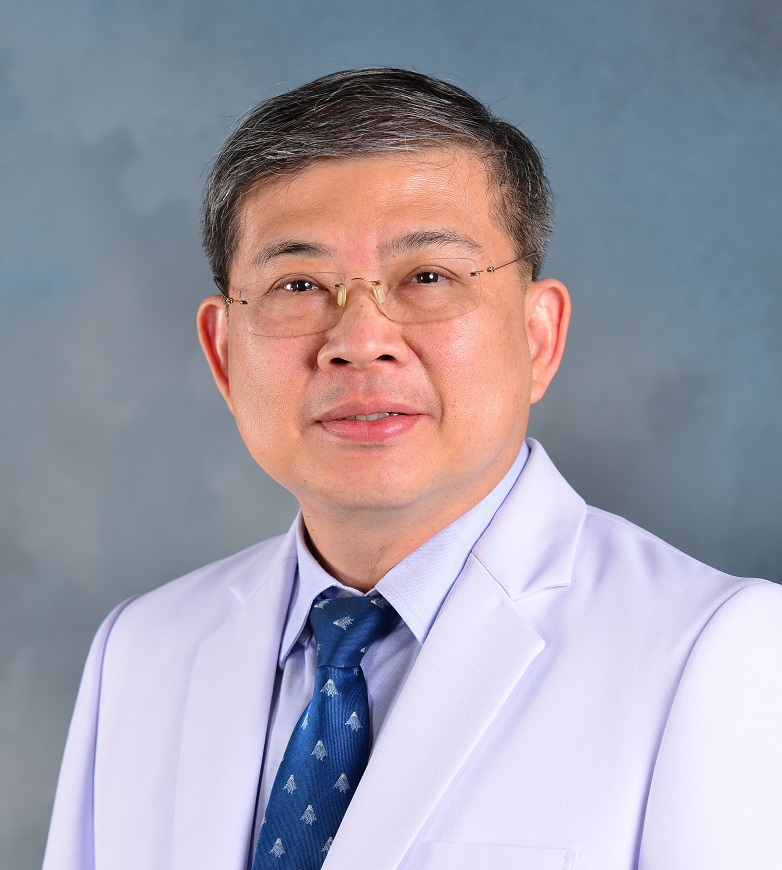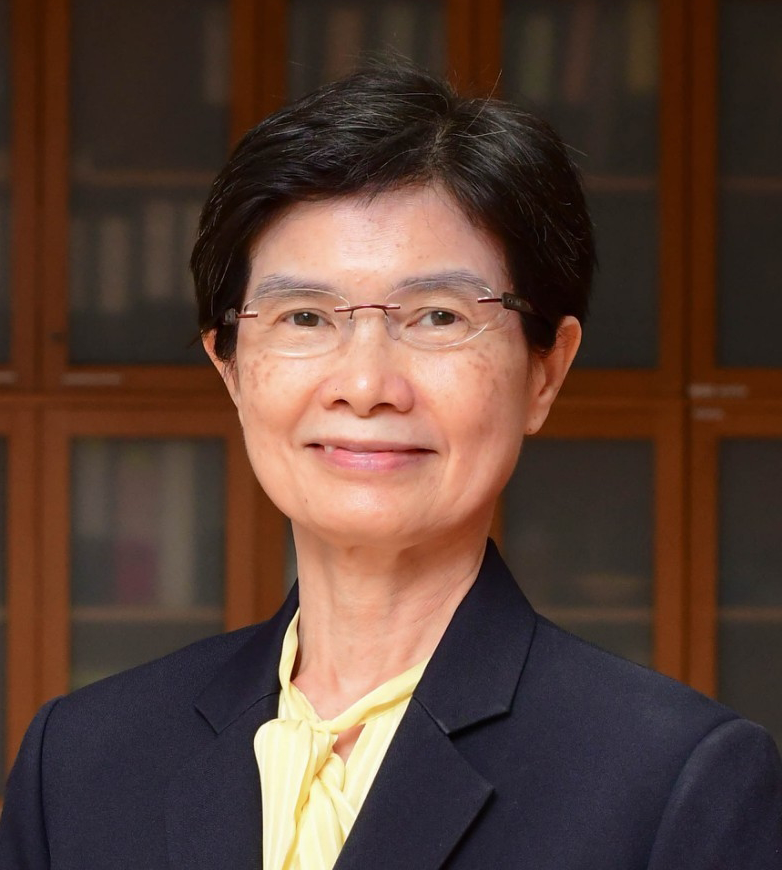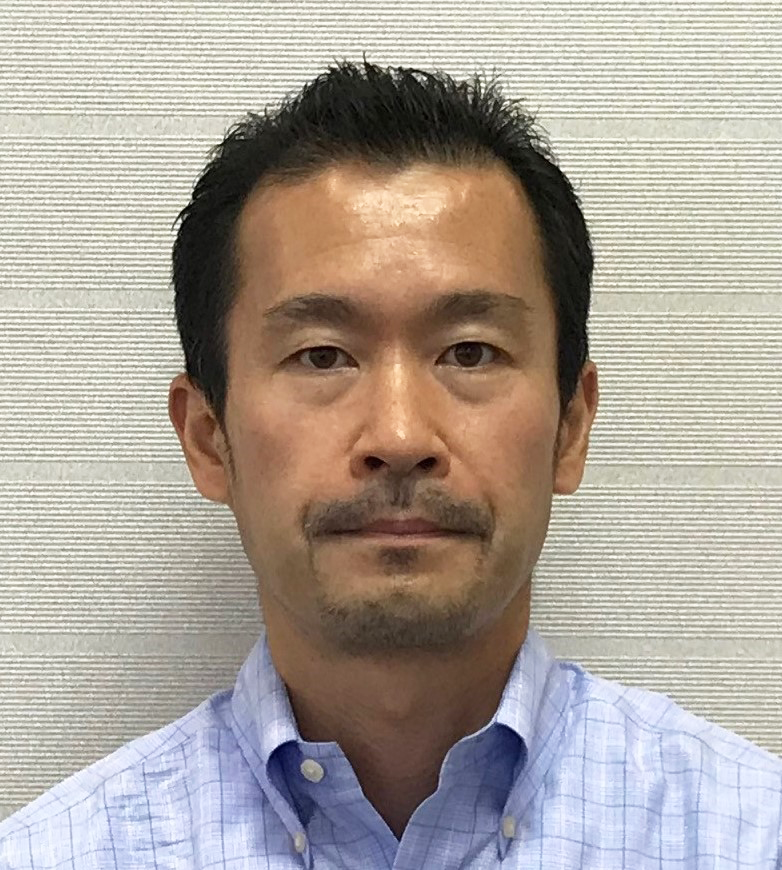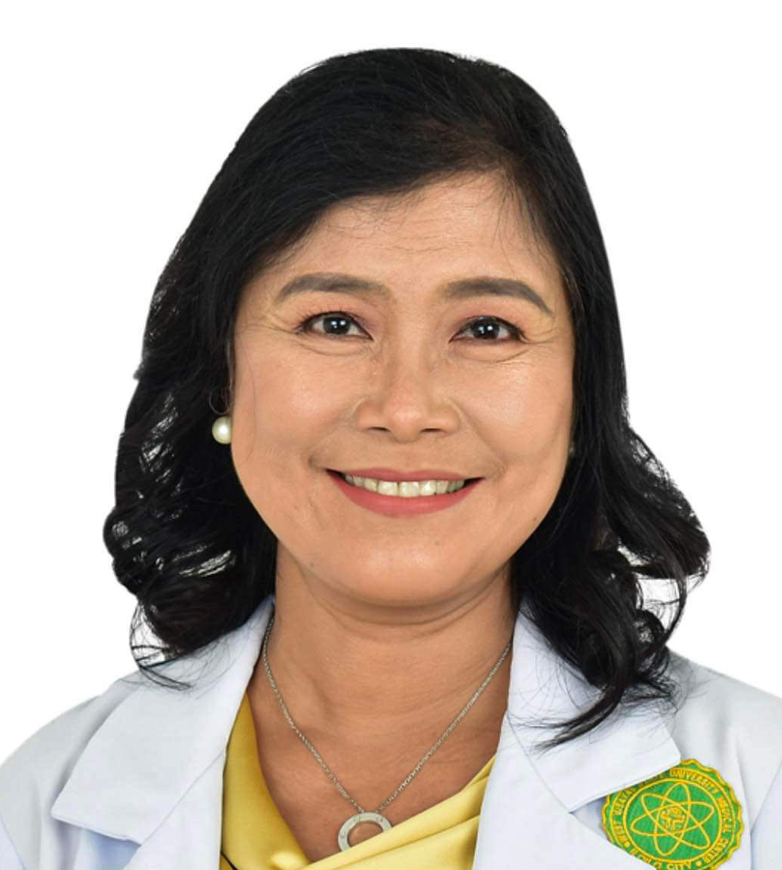News & Events
HOME > News & Events > Joint SIRIRAJ-NCGM Symposium 5th NCGM/CCS/DIT Symposium on Clinical Research and Trials
Joint SIRIRAJ-NCGM Symposium 5th NCGM/CCS/DIT Symposium on Clinical Research and Trials

- Keynote Speech: Assoc. Prof. Dr. Winai Ratanasuwan
- Director, SICRES, Siriraj Hospital Faculty of Medicine, Mahidol University, Thailand
Short Biography
Associate Professor Winai Ratanasuwan, M.D., is a specialist in infectious diseases and immunodeficiency at the Department of Preventive and Social Medicine, Faculty of Medicine Siriraj Hospital, Mahidol University. He also holds the position of Director at the Siriraj Institute of Clinical Research (SICRES).
Dr. Winai's research interests revolve around HIV, Adult Immunization, Tuberculosis, Influenza, and Dengue infection. His remarkable contributions to the field of preventive medicine were recognized when he was honored with the "Outstanding Preventive Medicine Physician in Clinical Preventive Medicine" award for the year 2022 that was presented to him by The Preventive Medicine Association of Thailand and the Department of Disease Control.
Abstract
Overcoming Challenges in Vaccine Trials: Ethical, Logistical, and Engagement Strategies for Optimal Success
Vaccine trials are a cornerstone of global public health, yet they face numerous challenges that must be overcome to ensure timely and equitable access to life-saving vaccines, particularly in the context of pandemic preparedness. This keynote speech explores the critical obstacles encountered during vaccine trials, including ethical dilemmas, participant recruitment challenges, logistical complexities, and public communication barriers. Ethical considerations such as informed consent and transparency are vital to protecting participant rights while advancing crucial research. Recruitment challenges are exacerbated in underrepresented populations, requiring innovative strategies to build trust and ensure diverse participation. Logistical issues, such as coordinating global trial sites, managing cold chains, and real-time participant monitoring, highlight the operational hurdles in conducting large-scale vaccine trials. Additionally, communication barriers, misinformation, and vaccine hesitancy further complicate public engagement and trial success.
This speech proposes forward-thinking solutions to address these challenges, including the use of digital platforms for study management, adaptive trial designs to enhance efficiency, and fostering community engagement through partnerships with local leaders and healthcare providers. By emphasizing stakeholder collaboration and innovative approaches, the speech outlines a pathway to successful vaccine trials that not only generate reliable data but also build trust, transparency, and long-term health benefits. These strategies are critical to pandemic preparedness, ensuring that future vaccine development can proceed rapidly and equitably, ultimately safeguarding global health.

- Speaker: Prof. Dr. Jarir At Thobari
- Director, Clinical Epidemiology and Biostatistics Unit (CEBU), Faculty of Medicine, Public Health and Nursing (FMPHN), Universitas Gadjah Mada (UGM), Indonesia)
Short Biography
-
Abstract
-

- Speaker: Prof. Dr. Kulkanya Chokephaibulkit
- Professor of Pediatric Infectious Diseases, Siriraj Hospital Faculty of Medicine, Mahidol University, Thailand
Short Biography
Professor Kulkanya is a professor in Pediatric Infectious Diseases at the Department of Pediatrics, Siriraj Hospital Mahidol University. She is the Founding and former Director of the SICRES, Siriraj Hospital Faculty of Medicine, Mahidol University, Thailand.
She obtained her medical degreein 1985 from the Faculty of Medicine, Siriraj Hospital, where she received her Pediatric residency training. She also obtained a Diplomate from the American Subboard of Pediatric Infectious Diseases and a Diplomate at American Board of Pediatric on the following years.
Prof Kulkanya is a member of several committees at the MOPH, Thailand includng the expert panel of the Adverse Event Following immunization, the Committee of Prevention of HIV Mother-To-Child Transmission, and the Subcommittee of Board of National Immunization. She is also a board member of several Pediatrics and infectious diseases societies.
Abstract
Patient Engagement in Vaccine Trials
Patient engagement plays a critical role in the success of vaccine trials, influencing recruitment, retention, data quality, and overall study outcomes. The key considerations are the real-world strategies to identify and approach target populations. The most important message is the benefit of the investigational vaccine.
The process of obtaining informed consent from adults requires clear communication and ethical considerations. While explaining the benefits of joining the study, the acceptable and reasonable risks should also be detailed. Engaging specific vulnerable populations, such as children, presents unique challenges. For instance, the use of age-appropriate informed consent and assent procedures that respect children’s level of understanding.
Incentives help enhance subjects’ engagement and retention. However, ethical implications of offering incentives – from travel cost compensation to national immunizations –highlight the importance of balancing the motivation to participate with ethical considerations. Effective patient retention strategies should include reasonable incentives, real-time communication platforms, and regular follow-ups.
Finally, it is necessary to publicly disclose vaccine trial outcomes, not only to fulfill ethical obligations and promote transparency, but also to ensure the development and refinement of effective and safe vaccine interventions. Effective strategies for communicating and disseminating study results to the public include tailored messaging, the use of various media platforms, and collaboration with stakeholders to ensure accessibility and comprehensibility to a broad audience.
The well-established comprehensive guidance for researchers to navigate the complexities of patient engagement in vaccine trials will enhance participation, compliance, and the overall impact of the research.

- Speaker: Prof. Dr. Punnee Pitisuttithum
- Professor Emeritus, Department of Clinical Tropical Medicine, Faculty of Tropical Medicine, Mahidol University, Bangkok, Thailand
Short Biography
Professor Emeritus Punnee Pitisuttithum is the staff and consultant to the head of the Department of Clinical Tropical Medicine, and clinical research chair of Vaccine Trial Centre (VTC) at the Faculty of Tropical Medicine, Mahidol University. She is an internationally recognized expert on tropical infectious diseases, especially on vaccine trials and clinical studies with an h-index of 46.
She has completed over 40 clinical trials and has more than 200 publications in international peer-reviewed journals, her works have been cited more than 10,000 times according to Scopus database. She has designed and conducted numerous clinical studies (phase I, II, III vaccine trials) of tropical diseases and vaccine against HIV/AIDS, HPV, Influenza, Dengue, Chikunguny, and other infectious diseases. She was the lead clinical investigator in the largest commu出ty trial of HIV vaccines (prime-boost regimen) involving 16,000 participants (RV144) which was the fo:st time showed efficacy in human. She played a key role in the testing of the world’s first commercial dengue vaccine.
Abstract
Protocol Compliance

- Speaker: Dr. Fumihiko Takeshita
- Vice President, R&D Division, Research Function, Vaccine Research Laboratories, Daiichi-Sankyo, Japan
Short Biography
Dr. Fumihiko Takeshita is a vice president of Vaccine Research Labs in Daiichi Sankyo., Co., Ltd. After graduated from the doctoral course in a department of internal medicine, Yokohama City University, he has worked as a post doctoral fellow in Office of Vaccine Research and Review, CBER, FDA in the United States. Since then, he had focused his academic research on immunology and vaccinology. After joining the company, he has been involved in R&D of novel vaccine technologies and modalities including those using intradermal injection device, adjuvants, and mRNA encapsulated in lipid nanoparticles (LNP-mRNA). In 2023, the marketing authorization of the first domestic COVID-19 vaccine harnessing an LNP-mRNA modality has been approved and it was launched in Japan. His team is focusing on innovative approaches for optimization of mRNA antigen, which is a key for the next-gen vaccine development.
Abstract
Lesson Learned from COVID-19 Vaccine Development and Approaches for Future Vaccine Development
Daiichi Sankyo Co., Ltd. (DS) is a Japan-based vaccine maker with a value chain consisting of R&D, manufacturing, and sales/marketing. DS has focused on research of original mRNA encapsulated lipid nanoparticle (LNP-mRNA) technology for more than 15 years and its vaccine application for more than 10 years. In response to COVID-19 pandemic in 2020, we developed LNP-mRNA with receptor-binding domain (RBD) antigens derived from spike protein of SARS-CoV-2 (LNP-mRNA-RBD, DS-5670) and obtained approval as Daichirona® (a COVID-19 vaccine) and launched in Japan in 2023. DS has so far conducted clinical studies with at least 3 different compositions of DS-5670 containing different antigens. Results of such studies have demonstrated clinically acceptable safety profile and non-inferior immunogenicity to BNT162b2, indicating that the LNP-mRNA-RBD vaccine platform has been established. DS is exerting best efforts for contribution to public health and economic security through R&D of pandemic vaccines in the future. DS is planning to establish a partnership among domestic and international vaccine stakeholders for rapid responses to pandemic emergency and to establish streamlined processes and ecosystems in vaccine development by utilizing controlled human infection challenge, volunteer panel for pandemic, decentralized clinical trial, etc.

- Panelist: Dr. Eriko Morino
- Section Chief of Clinical Research Management Office,
Department of Clinical Research Promotion, CCS, NCGM, Japan)
Short Biography
Dr. Morino specializes in infectious diseases, pulmonary medicine, and clinical trials. She has worked as a clinician and has three years of experience in the Pharmaceuticals and Medical Devices Agency (Japanese regulatory agency) and is performing research on pulmonary infectious diseases, including mycobacterial infections. She has been the chief of the Clinical Research Management Office, Department of Clinical Research Promotion, NCGM, since 2022. She is involved in the planning, implementing, and supporting clinical trials related mainly to infectious diseases and development aimed at the e伍cientimplementation of clinical trials.

- Panelist: Dr. Marie Grace Dawn Isidro
- Principal Investigator, West Visayas State University, Philippines)
Short Biography
Marie Grace Dawn T. Isidro is a medical specialist and head of the pulmonary unit at the West Visayas State University Medical Center. She is also a Principal Investigator for more than 2 decades.
She graduated from West Visayas State University with a degree in BS Biology as well as Doctor of Medicine and has acquired a fellowship in Pulmonary Medicine. She was a president of the Philippine College of Physicians West Visayas - Panay Chapter in 2012. She currently is an active member of the Philippine College of Chest Physicians and is an active consultant for various hospitals.
Medical research has always been something she is passionate about. She has been nominated and awarded in various research competitions such as PCCP Research Paper Oral Presentation Contest and IDLAB Award for Outstanding Researchers. She has worked with multiple industry sponsored clinical trials— such as Pfizer, Moderna, and Janssen— ranging from vaccines, infectious diseases, and oncology.

